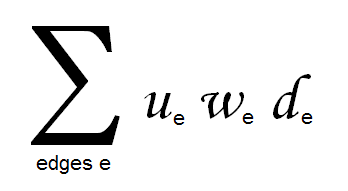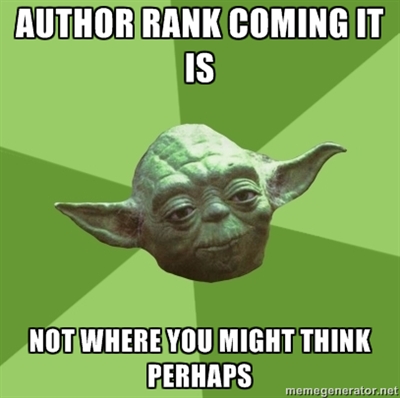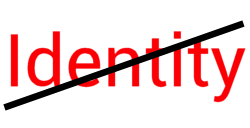Author Rank and the changing face of Facebook.
Social networking is big business and much is made of the positions and strengths of the major players such as Facebook and Google.
I was recently sent an email by Vincent Schmalbach promoting his post "Author Rank: Larry Page's Nightmare" in which he likens Facebook's EdgeRank algorithm with the concept of Google's Author Rank.
I cannot agree with the starting point of his piece, for the reasons stated below, but he does raise a few interesting questions.
EdgeRank is not author rank for Facebook
 EdgeRank is an automated relevance engine based on behaviour: it observes who we interact with, what we like, the types of post we most engage with, etc. and works to show us more of the same thus hoping to pique our interest and enhance our engagement - the overriding aim is to remove irrelevance and provide a better experience in our News Feed.
EdgeRank is an automated relevance engine based on behaviour: it observes who we interact with, what we like, the types of post we most engage with, etc. and works to show us more of the same thus hoping to pique our interest and enhance our engagement - the overriding aim is to remove irrelevance and provide a better experience in our News Feed.
Author rank (according to patents) seeks to determine the relevance of individual authors to specific search queries and promote those with the most authority within search results. EdgeRank is far more personal.
Once Open Graph data is available via Graph Search, however, a form of author rank could be employed by surfacing web content with the most likes/external Facebook comments as relates to the search query and this is where Vincent's notion of transferring "EdgeRank to web search" comes in to play but, as it stands, this will be more personal than a strict Author Rank.
Search
As I have said in the past, Facebook is outsourcing its search engine index to users via Open Graph but, again, it is a relevance engine: it is not an index of everything but an index of everything that mattered enough to Facebook users that they felt compelled to Like or comment.
 One thing Vincent and I do agree on is that Bing's social search initiatives could be a serious competitor for Google with regards to Author Rank and Open Graph data from Facebook could play a large part via nodes, connections and relationships. Unlike Bing, however, Facebook is not currently after definitive external data sources but about likes, interests and influence.
One thing Vincent and I do agree on is that Bing's social search initiatives could be a serious competitor for Google with regards to Author Rank and Open Graph data from Facebook could play a large part via nodes, connections and relationships. Unlike Bing, however, Facebook is not currently after definitive external data sources but about likes, interests and influence.
There is massive potential within Facebook but it exists in a state of dichotomy; on one side we have EdgeRank and Graph Search promoting relevance but, on the other, Facebook is constantly criticised for the complete lack of advertising relevance as though our interest data is being completely ignored.
Work is needed to make better use of the data held by the social behemoth.
Facebook's changing face
Much of Facebook's problem is that its social model, the traditional friending model, is becoming less relevant in the wider context of other services across the social web.
Social platforms have an increasing propensity towards discovery rather than just connecting:
- Twitter's #discover tab and continued use of hashtags
- Instagram and Foursquare explore options
- Google+ communities, automatic and related hashtags
While it is seen as copying other services, Facebook is having to change and adapt to the new social paradigms and this is what we have started to see recently. Be it something simple such as Subcriptions or, coming up to date, Graph Search this is now not the look of a network that relies solely on people connecting with those they already know.
What not who
 Despite what we may tell ourselves, the business of social is increasingly less about existing relationships but more about establishing connections or edges and what tiny signals might possibly be inferred or extrapolated from even the most innocuous of actions.
Despite what we may tell ourselves, the business of social is increasingly less about existing relationships but more about establishing connections or edges and what tiny signals might possibly be inferred or extrapolated from even the most innocuous of actions.
It's not who you are but what you do, where and when you do it, who you do it with and how they share that experience.
Facebook used to care who you were as that determined why family and friends might want to join and connect with you; your real identity was important. Now, however, things are shifting and changing focus.
I said a while back that Twitter didn't care who you were, Facebook cared a lot and Google wasn't bothered as long as you were consistent. The reality now is that all social properties require that element of consistency so that users can be effectively targeted with advertising etc. either directly within the network or within connected services.
The need to know exactly who we are is diminishing as long as we always have the same identity, be it real or not.
The role of social
So, if identity is not strictly as important as it was, social platforms will have little interest in becoming true identity providers but merely identity services. Rather than wanting social identities to be our digital passport it needs to be more our entry ticket.
Take your seat.

You won’t just be looking at aggregate data. Go back and look at each person’s interaction history no matter where it happens, web, mobile, social, desktop and even offline.
The link graph is still the big dog, at least for the time being. It still has the most influence on where your site ranks, but that is changing more and more every day. With a clear understanding of the link graph, the social graph and author rank system will make much more sense.